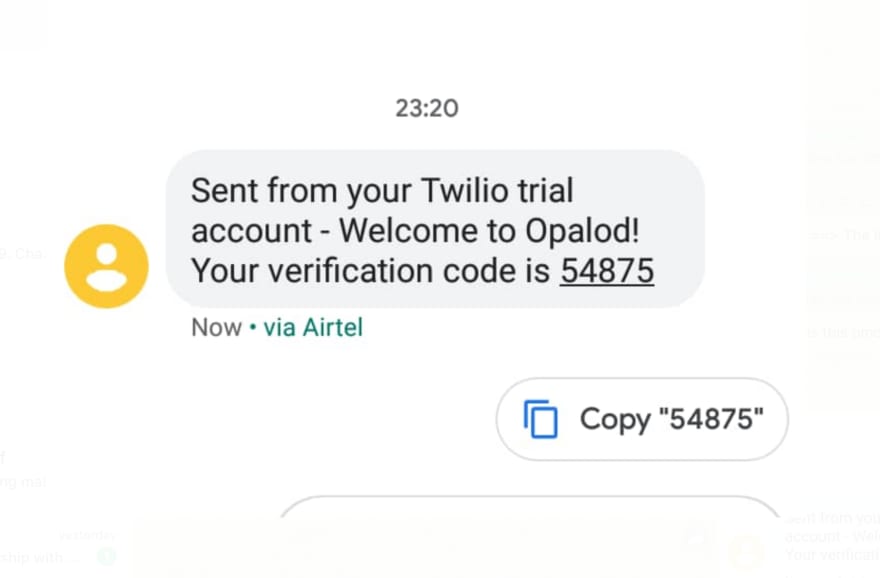


- #Send sms twilio node js how to
- #Send sms twilio node js install
- #Send sms twilio node js android
- #Send sms twilio node js verification
- #Send sms twilio node js code
It's known as the passthrough API, as it lets you pass many numbers through to the Notify service. We now have an API that allows you to send more than one message with a single API call. It's good to see other answers here talking about making requests sequentially rather than asynchronously as that will eat up the memory on your server as well as start to find requests are turned down by Twilio.
#Send sms twilio node js code
We also recommend that you don't send more than 200 messages on any one long code per day.Įither way I recommend using a messaging service to send messages like this.įinally, you are also limited to 100 concurrent API requests. A short code can send 100 messages per second. You can increase that by adding more numbers, so 10 numbers will be able to send 10 messages per second. With a single number, Twilio has a limit of sending one message per second. API Limitsįirst up, a quick note on our limits. I hope you found this article helpful.Twilio developer evangelist here.
#Send sms twilio node js how to

You can find the whole source code in my GitHub repo here Testing API in Postman Finally, your server.js should look similar to the below image Paste the above code too in your server.js and that is it. Below API take two params "phone number and code" Now it is time to create our second API which verifies the code.
#Send sms twilio node js verification
It is simply the way which you will receive the verification code. In channel, you can either use SMS or call. The above API takes two params, phone number, and channel. This snippet is to send verification code to our phone number Now in your server.js paste the below code.

const client = require( "twilio")(YOUR_ACCOUNT_SID, YOUR_AUTH_TOKEN)
#Send sms twilio node js install
#Send sms twilio node js android
Twilio Verify is a comprehensive solution for validating end-user phone numbers, which will be used to deliver a numeric code to the Android / iOS app through text message. It utilizes an event-driven, non-blocking I/O model that makes it lightweight, efficient, and excellent for data-intensive real-time applications that run across shared devices. Node.js is an open-source, JavaScript runtime environment on Chrome’s V8 that lets you effortlessly develop fast and scalable web applications.


 0 kommentar(er)
0 kommentar(er)
